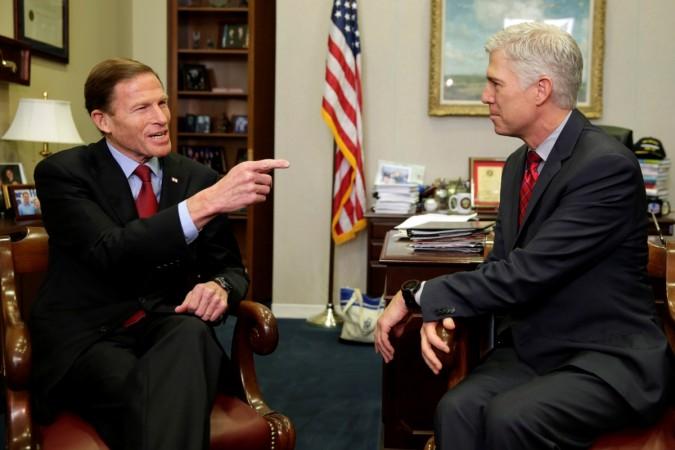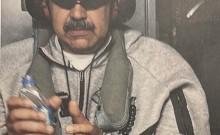
US President Donald Trump's Supreme Court nominee Judge Neil M Gorsuch expressed his dismay at the president's Twitter attack on federal district court judge James Robart as "demoralising" and "disheartening."
Also read: H1-B visa: More than 100 tech start ups urge US President Donald Trump against executive order
Gorsuch criticised the US president during a private meeting with Democratic Senator Richard Blumenthal on Wednesday. Gorsuch's spokesman, Ron Bonjean, confirmed that the supreme court nominee called the attack on Robart "disheartening and demoralising."
Trump had attacked Robart, who blocked his immigration ban against people from seven Muslim majority countries, as a "so-called judge" whose "ridiculous" ruling would be overturned. He had vowed that the travel ban would be reinstituted.
Gorsuch met Bluementhal before his confirmation as the supreme court judge. Democrats are reportedly under pressure to block his confirmation.
It is rare for a supreme court nominee to go against the president, who named him for the job.
Trump on Wednesday told a group of sheriffs and police chiefs on Wednesday that the appellate judges had failed to grasp concepts even "a bad high school student would understand" referring to his legal authority to impose the ban.
"This is highly unusual," said Michael W McConnell, a former federal judge who directs the Constitutional Law Center at Stanford University. "Mr Trump is shredding longstanding norms of etiquette and interbranch comity."
The travel ban on people from seven Muslim-majority countries had stopped people with valid visas and green cards from entering the country. However, the judiciary had overturned the ban to allow all those who were stopped.
The travel ban had led to massive uproar from citizens who protested at the international airports against it. ACLU lawyers had arrived at various airports to provide pro bono legal assistance to those who were stopped from entering. As many as 60,000 visas had been cancelled, which were reinstated once the travel ban was lifted.















